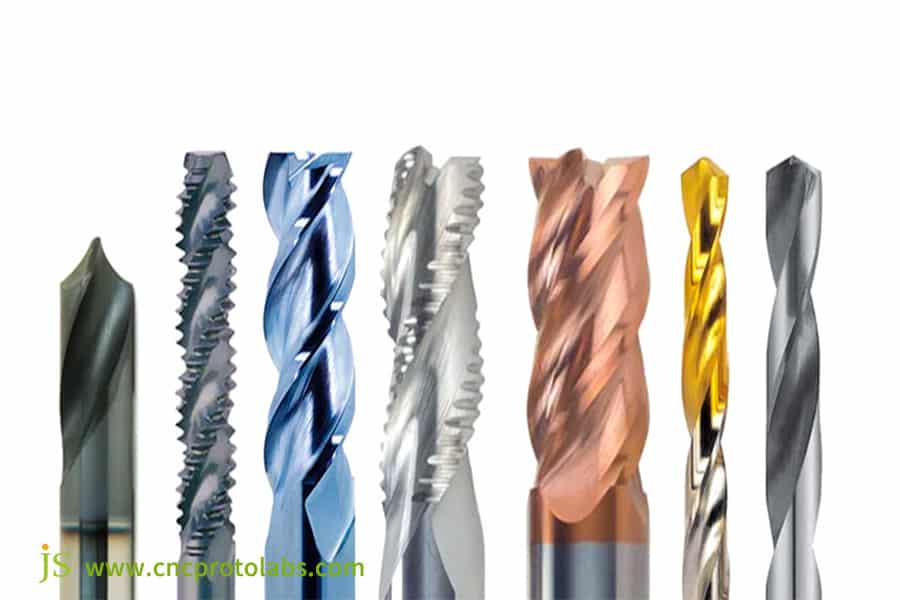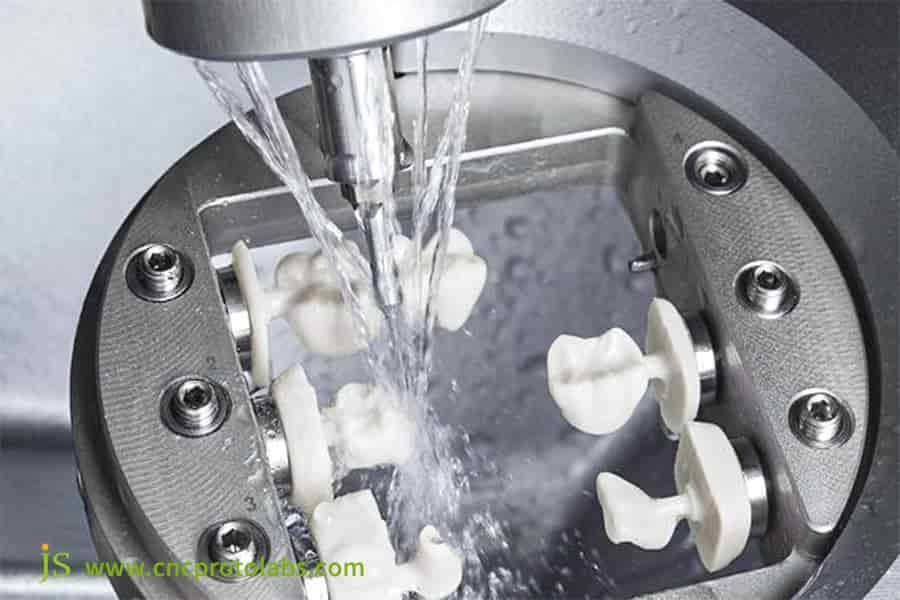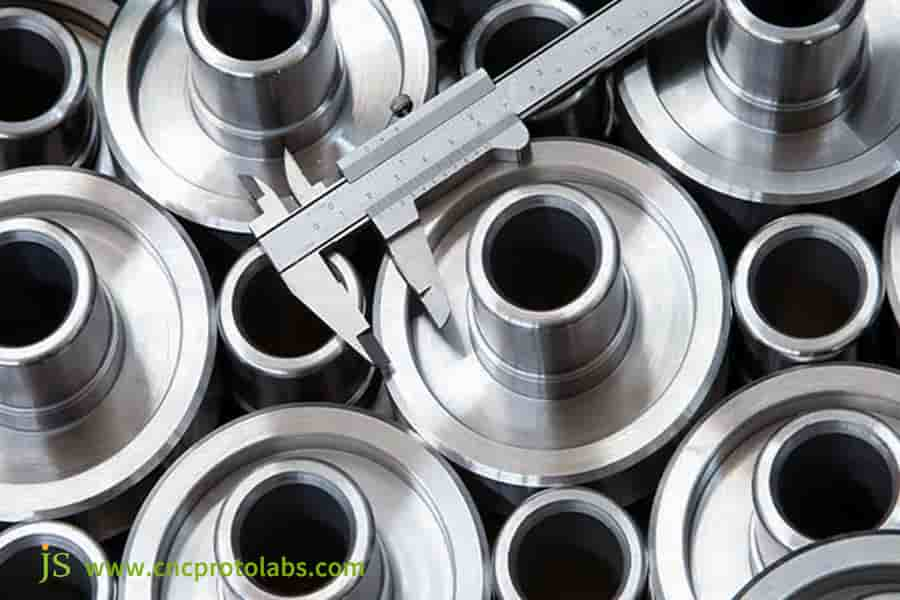Precision CNC milling is the "uncrowned king" in the arena of modern manufacturing. It can sculpt structures finer than a human hair in medical devices and mill complex, force-bearing surfaces in aerospace components.
The key to such a transformation of digital blueprints into physical entities lies in the ultimate control over materials, motion, and energy.
With many years of experience in CNC milling, JS Precision has gained a profound understanding of customers' needs for precision, effectiveness, and consistency concerning custom parts machining.
Therefore, we have compiled this guide, comprehensively dissecting precision CNC milling from its technical principles to practical applications, and explaining how JS Precision, by leveraging the latest high precision CNC mill and process knowledge, provides you with precision CNC machining services above your expectations.
Summary Core Answer
| Comparison Dimensions | Traditional CNC Milling | Precision CNC Milling |
| Positioning Accuracy | ±0.025mm | ±0.005mm or higher |
| Surface Finish | Ra 1.6 - 3.2 μm | Ra 0.4 - 0.8 μm or mirror finish |
| Typical Feature Scale | Millimeter | Micrometer, e.g., micro-holes, thin walls |
| Thermal and Vibration Control | Basic | Systematic Control, such as coolers and vibration damping mechanisms. |
| Quality Control | Spot checks. | Full process monitoring + 100% critical dimension inspection. |
| Core Competencies | To attain shape and function. | To achieve performance, reliability, and ultimate precision. |
Why Choose JS Precision? Complete Solution Covering Precision CNC Milling
Why choose JS Precision when there are so many providers of CNC machining services in the market? Pretty simple: we have truly proven precision CNC milling capabilities.
JS Precision has 18 years of experience in precision CNC milling, serving 23 industries including aerospace, medical, automotive, and optical semiconductors, delivering over 620,000 custom machined parts.
For example, we machined engine blades for an aerospace client, achieving a tolerance control of ±0.003mm, we also delivered a complex porous titanium alloy bracket to a medical company within 5 days.
Besides, we have 35 high precision CNC mills, including 3-axis, 4-axis, and 5-axis equipment. We provide a complete precision CNC machining service solution, including design optimization, process customization, and surface treatment.
This guide is not just an enumeration of the theory but also a summary of our years of practical experience. Every point has been verified through actual projects, so you can completely trust it.
By choosing JS Precision's precision CNC milling service, you have full control over the entire process, starting from communicating your requirements to the delivery of parts. We will customize a solution according to your needs, so that you are freed from worrying about machining details.
How does precision CNC Milling Achieve "Material Follows The Finger" Precise Control?
After understanding why you should choose us, you will want to know how precision CNC milling achieves "material follows the finger" precise control. It's all about the scientific principles and rigid processes, which are again the key to meeting the high precision required in CNC milling.
Core Principles
Precision CNC milling is a "subtraction" system in principle. With the help of computer digital control, it drives a rotating cutting tool to move along a pre-set 3D path, precisely removing excess material from the workpiece, to get the desired part that meets design requirements. The whole process is program-controlled without human error.
Workflow Breakdown
1. Digital Instructions: The CAD model is thereby translated into G-code through CAM software with information on machining parameters such as tool rotation speed, feed rate, and movement path.
2. Physical Execution: Upon receiving the G-code, a CNC system will power servo motors that control each axis of the machine tool in a coordinated fashion such that the tool follows the pre-set path.
3. Material Removal: The machine tool drives the high-speed rotating carbide or diamond tool to contact the workpiece and cut according to the parameters.
The basis for precision is multi-stage collaboration:
A rigid mechanical structure to prevent cutting deformation, closed-loop feedback from the grating ruler for correcting positional deviations, computational power of the CNC system to ensure execution according to instructions, and a temperature compensation system offsetting environmental influences. These four working together guarantee precision in "material follows the pointer."
Why Are Customized CNC Milling Processes Required For Different Materials?
Material property is an important factor influencing the effect of precision CNC milling. The hardness, toughness, and thermal conductivity are all different for different materials. Using a uniform process can make the precision of a part substandard or cause accelerated wear of the tool. Therefore, specific CNC milling processes need customization.
I have put together the following table to help you better comprehend the differences:
| Material Type | Process Characteristics | Tool Type | Cooling Method | Key Considerations |
| Aluminum Alloy | High Speed, High Feed | Sharp Carbide Tools | Emulsion Cooling | Prevents the built-up edge, and also provides for a smooth surface. |
| Stainless Steel | Low speed, low feed | Tough carbide tools | Oil mist cooling | Overcomes work hardening and reduces cutting forces. |
| Titanium Alloy | Low cutting speed | High-pressure internal cooling carbide tools | High-pressure internal cooling | Strictly controls the heat of cutting to avoid deterioration on the surface. |
| Engineering Plastics | High speed | Extremely sharp special tools | Air cooling | Prevents part deformation and melting. |
JS Precision has built an optimized CNC milling process parameter database for dozens of materials, which can quickly recall suitable processes to maximize material performances for machining high-quality parts.
JS Precision provides CNC milling processes with customization for several materials, fully adapting to material characteristics for high precision and high surface finish parts. By choosing our service, you eliminate the headache of material compatibility.
What Factors Define The Precision Limits Of Your Custom Machined Parts?
When it comes to custom machined parts, you are naturally concerned about the required precision. Actually, the precision limit of the custom machined parts is decided by four major factors: machine tool, cutting tool, thermal deformation, and fixture. All of these are critical.
1. Inherent Properties of the Machine Tool:
The geometric accuracy, positioning accuracy, repeatability, and dynamic rigidity are basic properties of the machine tool. Poor machine tool precision is hard to make up in the later stages, for instance, poor precision in positioning accuracy can easily result in toolpath deviation.
2. The Synergistic Effect of the "Cutting Tool System":
Tool holder runout affects cutting stability, poor tool balance easily generates vibration, and a dull cutting edge increases the cutting force and affects the surface roughness. These three factors together directly determine the quality of the machining.
3. Thermal Deformation – The Hidden Precision Killer:
Ambient temperature fluctuations and heat generation from the spindle and guideways may cause dimensional drift on machine tool components. For instance, the thermal expansion of the spindle during a longer operation will result in misalignment of the tool position. Therefore, it is important to have a temperature-controlled workshop and a thermal compensation system.
4. The Art of Fixture Design:
Inappropriate fixtures can cause workpiece deformation, and post-machining springback can cause custom machined parts to exceed dimensional tolerances. Too much clamping force will easily cause the plastic deformation of thin-walled parts.

Figure 1: Cutting tools are one of the factors that affect the accuracy of parts.
What Core Configurations Should A Truly High-Precision CNC Milling Machine Have?
To carry out precision CNC milling with high quality, it is fundamental to have a high-precision CNC milling machine with superior performance. What are the essential configurations? I will break it down for you from four key aspects:
1. Solid Foundation: The bed of the machine tool normally uses mineral casting or high-quality cast iron in order to achieve high rigidity and high damping characteristics. High rigidity can prevent cutting deformation, while high damping characteristics suppress vibration, thereby avoiding impacts on accuracy.
2. Precision Drive and Feedback: The main priorities of the drive system are linear motors or high-precision ball screws, providing stable and precise power. Meanwhile, it works with a fully closed-loop grating ruler feedback system to detect tool positions in real time, correct deviations, and realize true position monitoring.
3. Thermal Stability Spindle: Utilizing a high-speed electrical spindle with either liquid cooling or oil-mist lubrication, it controls the temperature rise during operations and ensures that long-time use has little thermal expansion, and thermal deformation does not affect the accuracy.
4. Advanced CNC System: It should include functions like look-ahead control, adaptive feed, and dynamic error compensation. It plans the path in look-ahead control, adjusts the speed in adaptive feed, and offsets the deviations in dynamic error compensation.
Our high precision CNC mill is selected from top brands like DMG MORI and HAAS. It is regularly laser calibrated and maintained to make sure it can support precision CNC milling reliably.
High precision CNC mills of JS Precision are carefully screened, and regular maintenance and calibration provide solid equipment conditions for precision CNC milling. Choosing us means choosing stable and reliable machining assurance.
From Aerospace To Medical: Where Is The Boundary Of CNC Milling Applications?
Precision CNC milling boasts a very wide range of applications that span many key industries. Many customers wonder what the limits of the CNC milling applications are. Essentially, anywhere there is demand for high-precision custom parts, no matter the industry, is where Precision CNC Milling can play a role. Here are some common application areas:
| Industry Sector | Typical Application Components | Key Machining Requirements |
| Aerospace | Engine blades, aircraft frames, UAV structural components. | Extremely high strength-to-weight ratio, fatigue resistance, strict tolerance control. |
| Medical Devices | Surgical robot joints, orthopedic implants, endoscope components. | Biocompatibility, extreme complexity, perfect surface finish. |
| Optics & Semiconductors | Lens molds, vacuum chambers, wafer jigs. | Mirror effect, atomic-level surface integrity, no particulate contamination. |
| Automotive | Engine blocks, gearbox housings, new energy battery boxes. | High efficiency of production, structural reliability, and balancing of cost and quality. |
JS Precision has experience in a wide array of unique requirements for industries such as high-temperature fatigue resistance for aerospace engine blades and biocompatibility for medical orthopedic implants. The truth is, the limitation to the CNC milling applications lies solely in your innovative needs.
JS Precision has broad experience in many CNC milling applications, from high-requirement components in aerospace down to precision parts in the medical industry. We are able to machine them precisely for smooth project development.

Figure 2:Precision-crafted tools and implants are paramount for successful dental procedures. CNC milling ensures each dental piece is tailored perfectly.
From Order Placement To Delivery: What Is The Typical Delivery Cycle For Precision CNC Machining Services?
When precision CNC machining services are selected, the delivery time is definitely one of the major considerations. Precision CNC machining services at JS Precision are transparent and controllable. It has made it clear how much time to spend on each stage.
Timeline Breakdown
- Process Review and Programming: 1-2 days. Engineers review the drawings, determine the process, and write G-code.
- Material preparation: 1-3 days. The standard materials are prepared within 1 day, while special materials take approximately 3 days to procure.
- CNC Machining: 1-5 days. Simple parts are batch processed in 1 day, complex parts need about 5 days, depending on the complexity and quantity of the parts.
- Quality Inspection and Reporting: 1-2 days, full-dimensional inspection and report issuance.
- Surface Treatment and Packaging: 1-2 days. The process consists of surface treatment, such as anodizing and sandblasting when necessary, and professional packaging for safe transportation.
Key Factors Affecting Cycle Time
It depends on part complexity, order quantity, material availability, and the processes of surface treatment. More complex parts, larger quantities, special materials, and complex processes result in longer lead times.
JS Precision's Commitment: For urgent projects, we can expedite the processing. We can reduce delivery cycles by as much as 50% of the standard cycle time through concurrent engineering and resource allocation.
Precision CNC machining services from JS Precision are delivered with clear visibility into the delivery cycle, expedited services on urgent projects, promptly responding to your project schedule and saving you from waiting. Contact us today for more information.
Case Study: How JS Precision Achieves 5-Day Urgent Delivery Of Medical Implant Stents
As mentioned briefly in the service overview, we have expedited services for urgent projects. In this, we use a real-world case study to show how JS Precision delivers medical implant stents within 5 days and provide more intuition about our precision CNC milling capabilities.
Customer Challenge
A medical device company urgently needed a batch of titanium alloy spinal implant stents for clinical trials, which posed a great challenge to us.
- First, the part has a complex structure with porous bone ingrowth and a wall thickness of merely 0.2mm, which is easily deformed under slight stress.
- Second, the surface cleanliness and biocompatibility are very demanding, with no impurities or burrs allowed.
- Most importantly, the timeframe from design freeze to clinical deployment was only 7 days, a very tight schedule.
Solution by JS Precision
A specific solution was therefore developed to respond to these challenges:
1. Concurrent Engineering:
After receiving a CAD model from the client, the programming, process planning, and materials procurement team started working simultaneously. While the programming team was writing the G-code, the process team determined the machining parameters, and the procurement team urgently allocated the required titanium alloy materials, thereby saving 2 days directly.
2. Micro-milling Technology:
A micro-carbide cutting tool with a diameter of 0.5 mm was used for machining on a DMG MORI 5-axis high precision CNC mill. All complex cavities and porous structures were machined in one setup by the 5-axis machine tool, avoiding secondary clamping errors. The micro-tool cut the thin-walled structure precisely without deformation.
3. Complete Cleaning Control:
All processing and post-processing are performed in an independent cleanroom with 10,000-class cleanliness. After processing, each piece is washed three times with ultrasonic cleaning equipment to remove the residual impurities, then uses special testing equipment to check for surface burrs, ensuring the parts reach medical grade.
Our Achievements and Value
In the end, we supplied all 20 qualified parts within 5 days. Testing showed that the dimensional tolerances of the parts were controlled within ±0.005mm, and the surface finish reached Ra 0.2μm, fully meeting medical-grade standards.
Customer feedback: "JS Precision's rapid delivery allowed us to successfully save our critical clinical trial timeline and avoid project delays. Your professional capabilities are trustworthy." This cooperation also established a long-term partnership with our client.

Figure 3:Titanium alloy spinal implant stent
How To Ensure Size Consistency Of Thousands Of Custom Machined Parts In Mass Production?
If your order requires mass production of custom machined parts, you doubtless will need to worry about the dimensions being the same across a thousand parts. At JS Precision, we have methods which have been proven to ensure consistency in mass production.
1. Standardized Operations: We create detailed SOPs, clearly defining the installation of tooling, setting of parameters, and inspection processes. Operators will follow all procedures to ensure there is no dimensionality deviation due to human error.
2. Statistical Process Control: On our production line, quality control checks are made after three stages: roughing, semi-finishing, and finishing. The key dimension is sampled, inspected, and recorded, analysis of the data is done and adjustments to the process immediately carried out once any deviation is detected to avoid batch defects.
3. Fully Automated In-Machine Measurement: Each high precision CNC mill is installed with a Renishaw probe. During machining, the machine automatically measures the workpiece, feeds back data, and makes necessary adjustments in tooling to compensate for deviations while ensuring dimensional accuracy for the forthcoming pieces.
4. Final Full-Dimensional Inspection: After batch production, we randomly select the first, middle, and last pieces for full-dimensional verification by using a CMM whose precision is ±0.001mm to ensure compliance.
It is through these methods that our precision CNC machining services guarantee zero variation in every batch of custom machined parts and have made us a key supplier for many Fortune 500 companies.

Figure 4:Ensure size consistency of custom machined parts in mass production.
FAQs
Q1: What are the minimum tolerances and best surface finishes that can be achieved by precision milling?
Tolerances of ±0.005mm are realizable under highly controlled conditions, with associated surface finishes that could extend to Ra 0.2μm or even better, depending on material and part characteristics.
Q2: How should I choose between 3-axis, 4-axis, and 5-axis milling?
3-axis milling can be used for the machining of simple planes, holes, and other structures, 4-axis milling with a rotary table is suitable for the machining of cylindrical surfaces and other features around it, 5-axis milling is suitable for complex curved surfaces and deep cavity parts to avoid multiple clamping operations.
Q3: What is "milling chatter"? How to eliminate chatter?
Milling chatter refers to the harmful vibration produced between tool and workpiece during the cutting process. It affects the surface quality. The chatter can be eliminated by using the vibration damping tool holder, adjusting speed and feed rate, and tools with variable helix angles.
Q4: What kind of cutting tools are used?
It depends on the material to be processed and the specific machining process. Available types include carbide tool, ceramic tool, CBN tool, and diamond tool to ensure machining result and tool life.
Q5: Is it possible to mill directly on steel that is heat-treated to HRC50 or even higher?
Yes, it is called hard milling.We will use specialized CBN or wear-resistant hard alloy cutting tools and adopt a low-speed, high rigidity hard milling strategy to ensure machining accuracy.
Q6: What should be included in my design files for the best quote?
Please provide 2D PDF drawings with all of the dimensional tolerances, geometric tolerances, and surface finish requirements and 3D STEP or IGES format model files for quoting.
Q7: How do you ensure the cleanliness of your parts, in particular, for medical or optical applications?
Machining and post-processing are performed in a dedicated cleanroom. We use special equipment for cleaning the parts, which ensures that the delivered parts are free from oil, fingerprints, and particulate contamination.
Q8: What is the minimum feature size you can machine?
By applying micro-milling technology, we can reliably machine grooves as narrow as 0.1mm. Holes with a diameter of 0.3mm can meet the machining needs of minute features.
Q9: What's the biggest advantage of JS Precision in precision milling?
We provide "turnkey engineering" services, not just simple machining, but also covering the entire process including design optimization, material selection, and quality inspection.
Q10: If my parts require multiple post-processing steps, can you handle it all in one stop?
Of course. We provide a number of post-processing options, including anodizing, sandblasting, screen printing, and coating. Besides that, we are able to provide simple assembly services, which simplifies your supply chain management.
Summary
Precision CNC machining represents the very best in modern high-end manufacturing whereby boundless design ideas get transformed into reliable physical entities. More than selecting some few machine tools, you're further choosing a team's technical capability, its philosophy regarding quality, and its relentless drive for perfection.
JS Precision is just this kind of partner to trust critical projects with. JS Precision offers quality precision CNC machining services from several CNC machining applications for aerospace, medical, and more. We offer guaranteed accuracy and efficiency in custom machined parts, transparent delivery cycles, and fast-tracking services.
Never let your exquisite designs stay on the screen. Send your CAD files now to JS Precision's expert team for precision, reliability, and exceptional value with top-tier precision CNC machining services. Click to get an instant quote, and let's work together to bring your vision into reality!
Disclaimer
The contents of this page are for informational purposes only.JS Precision Services,there are no representations or warranties, express or implied, as to the accuracy, completeness or validity of the information. It should not be inferred that a third-party supplier or manufacturer will provide performance parameters, geometric tolerances, specific design characteristics, material quality and type or workmanship through the JS Precision Network. It's the buyer's responsibility Require parts quotation Identify specific requirements for these sections.Please contact us for more information.
JS Precision Team
JS Precision is an industry-leading company, focus on custom manufacturing solutions. We have over 20 years of experience with over 5,000 customers, and we focus on high precisionCNC machining,Sheet metal manufacturing,3D printing,Injection molding,Metal stamping,and other one-stop manufacturing services.
Our factory is equipped with over 100 state-of-the-art 5-axis machining centers, ISO 9001:2015 certified. We provide fast, efficient and high-quality manufacturing solutions to customers in more than 150 countries around the world. Whether it is small volume production or large-scale customization, we can meet your needs with the fastest delivery within 24 hours. Choose JS Precision this means selection efficiency, quality and professionalism.
To learn more, visit our website:www.cncprotolabs.com





